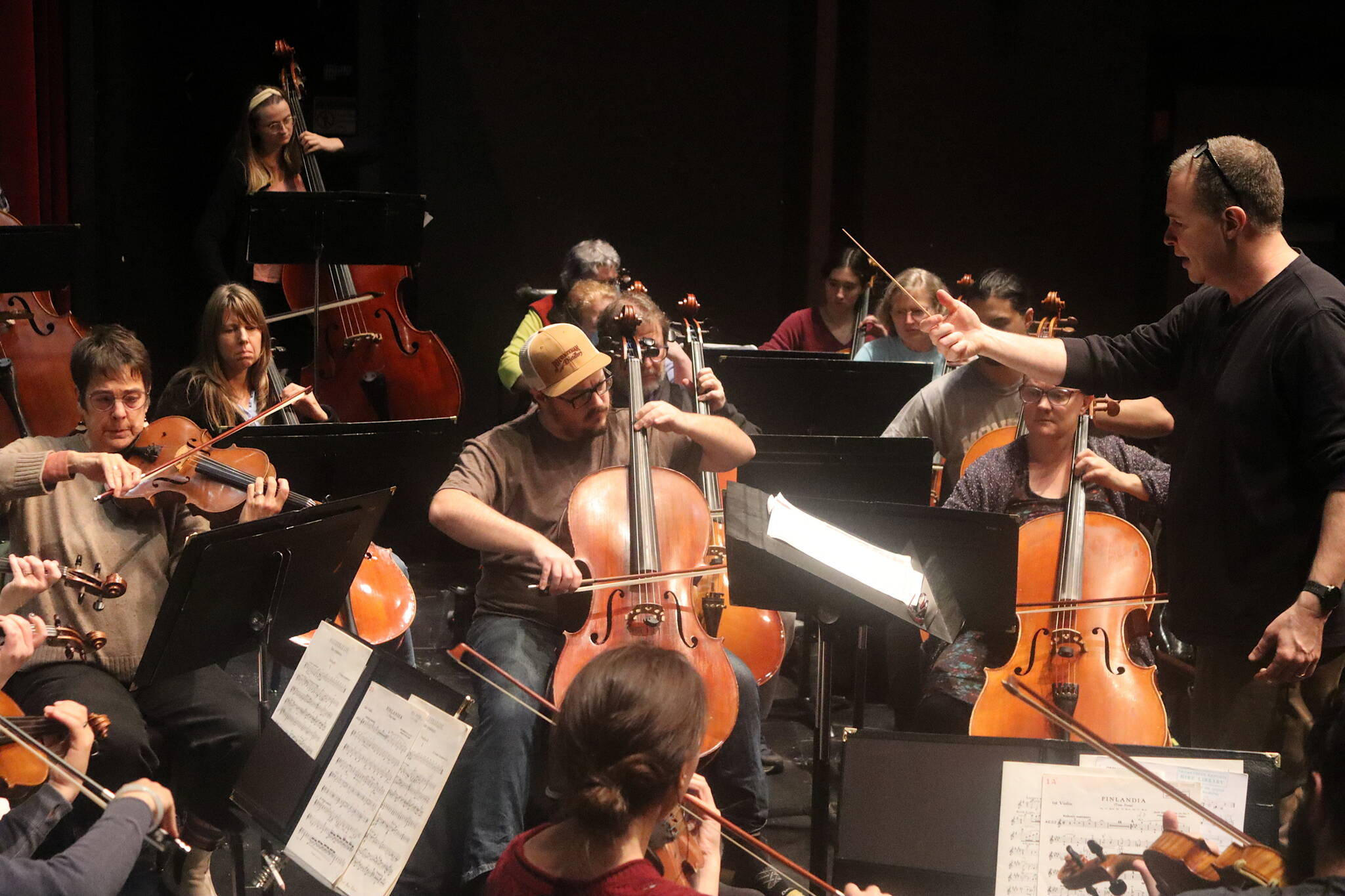To kick off its 60th birthday celebration the Juneau Symphony is telling a trio “Stories” including a fit-for-today poem about a country trying to survive a Russian invasion, an old Russian tribute to a woman whose tales allows her to survive a vengeful prince of Persia and…uh, improvisationally speaking, one that’s not like the others.
The performances, scheduled at 8 p.m. Saturday and 3 p.m. Sunday at Juneau-Douglas High School: Yadaa.at Kalé, are an introductory chapter to a season highlighting an unusually wide range of eras, composers and genres, Christopher Koch, the symphony’s music director, said in an interview Tuesday. Stories, the first mainstage concert of the season, features a progression of two highly familiar classical pieces with differing styles and a far-out-there finale with the self-descriptive title “Omnifenix – Concerto for Improvising Saxophone, Drumset, and Orchestra”.
Orchestras and the country are making a real commitment not just to living composers, but more diversity,” he said. “If we don’t champion our composers who are alive today we’re not going to have anything left,” he said. “We’re not going to have a music culture.”
The concert is scheduled to open with Sibelius’ best-known work, “Finlandia,” first performed in 1899. It became a symbol of the country’s struggle against an invasion by neighboring Russia, which Koch said makes the narrative fitting for today’s situation in Ukraine, although that’s not why he selected the piece when coming up with the season debut program this spring.
“It just has a certain quality that felt to me is good to open our season with,” he said.
Russia’s presence takes on a less sinister tone in the symphony’s performance of the 1888 suite “Scheherazade” by Nikolai Rimsky-Korsakov. Charlotte Truitt, the symphony’s executive director, described it as a “larger-than-life” musical interpretation of a few of the epic “One Thousand and One Nights” folktales by a variety of Middle Eastern authors going back many centuries.
“Really everything on our program in designed to be epic, over-the-top, a little bit extra,” she said.
Over-the-top may be how some classical purists feel about the finale, a roughly 16-minute piece narrated by mainstream jazz improvisations of the sax player over the set composition played by the orchestra, with the drummer essentially serving as a translator between the two. Visiting tenor saxophonist Stephen Jones and percussionist Fabio Augustinis, whose lengthy resumes include currently serving as educators at Texas Tech University, will be the featured players for the performance.
“It’s a really cool piece because it’s just a contemporary big band chart,” Koch said. “But instead of big band it’s for an orchestra.”
Koch said he’s not aware of the symphony working with an improvisational soloist before and, while classical performers are accustomed to having their colleagues on stage stick with what on the sheet music, this particular piece shouldn’t prove perplexing.
“It’s actually very logical the way it’s written for them,” he said. “It’s one of those pieces that sounds hard, but is easy to put together.”
Listeners interested in learning more about the pieces being performed can attend pre-concert talks at 7 p.m. Saturday and 2 p.m. Sunday. The symphony is also seeking volunteers for the box office and as ushers, with a free ticket provided to participants.

